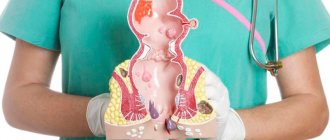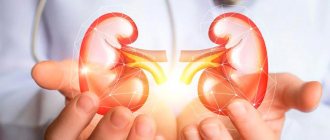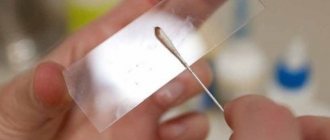In the article we tell you who a urologist is: what he treats for men and women, what diseases and symptoms should be addressed, who is recommended to undergo preventive examinations by a urologist and at what age. We will also tell you how the examination is carried out and what methods are used for diagnosis.
The differences in the functioning of the organs of the genitourinary system in men and women, in adults and children are so striking that separate areas and specializations have been formed in urology.
For men (18+)
A doctor who treats diseases of the male genital area is called a “urologist-andrologist”, “urologist-sexologist”. Representatives of the stronger sex should contact him for any changes in the functioning of the genital organs (internal and external).
Urological symptoms in men
The disease does not always signal itself with acute pain. Some serious problems begin with subtle changes that may not seem worthy of a trip to the doctor. Therefore, urologists recommend that men pay attention to their sensations during or after urination, during and after sexual intercourse. And if you feel any changes, even minor ones, do not hesitate to visit a doctor.
You need to consult a male urologist-andrologist if you are concerned about:
- Acute pain in the groin, penis, testicles, lower abdomen, prostate area.
- Frequent, prolonged or constant nagging, aching pain in the groin area (inside and/or outside).
- Change in urination pattern.
- Frequent urination.
- Feeling of incomplete emptying of the bladder.
- Itching, burning in the groin area.
- Redness, swelling of the testicles and/or penis.
- Discharge from the genital tract.
- Pain when urinating, cutting, burning.
- Pain during sexual intercourse or ejaculation.
- Blood in semen.
- Problems with potency.
- Ejaculation too early.
- Infertility.
Urological diagnoses in men
The listed symptoms often turn out to be signs of diseases of varying severity.
Most often these can be:
- Inflammation (prostatitis, urethritis, cystitis, balanoposthitis, etc.)
- Infections.
- Sexually transmitted diseases.
- Vascular problems - poor circulation in the vessels of the genitourinary system.
- Hormonal disorders (lack of testosterone, hypogonadism, etc.)
- Stones in the prostate.
- Erectile disfunction.
- Premature ejaculation.
- Benign tumors.
- Malignant neoplasms.
Preventive examination for men (40+)
Preventive measures, of course, will not hurt anyone. Men at any age should pay due attention to their intimate health. For example, once a year, even if nothing worries you, it is recommended to do an ultrasound of the prostate. It is also advisable to add an annual visit to the urologist to your list of healthy habits.
However, if up to 40 years of age this advice is advisory in nature, then for men over 40 years of age it becomes mandatory. After 40 years, men should not wait for any symptoms to appear.
We would like to draw your attention to the fact that in European countries, systematic visits to a urologist are the same norm for men as, for example, visits to a hairdresser. The result of this attitude towards oneself is higher indicators of public health and average life expectancy in European countries.
At least once a year you must undergo:
- preventive examination by a urologist;
- Ultrasound (TRUS) of the prostate gland;
- PSA blood test (for early diagnosis of prostate cancer);
- tests for sex hormones;
- tests for infections.
The urologist may prescribe other types of diagnostics, depending on the symptoms and the results of studies already performed.
What is urology
Urology is a branch of medicine that deals with issues related to the anatomy, physiology and functioning of the urinary and reproductive systems.
In addition, some pathologies of the retroperitoneal space also relate to urological diseases, and therefore they are included in the list of reasons for contacting a urologist.
For women (18+)
A doctor who treats female urological pathologies is called a “urogynecologist” or “urologist-gynecologist.” The most popular female urological problems are:
- cystitis;
- urethritis;
- overactive bladder.
Among the symptoms for which you should immediately visit a female urologist:
- frequent urination;
- pain, burning, cramping when urinating;
- feeling of incomplete emptying of the bladder;
- urinary incontinence (involuntary release of drops of urine when sneezing, coughing, laughing and other sudden movements).
Other specializations
Differentiation by gender and age alone was not enough. Therefore, doctors were also identified who specialize in the treatment of certain groups of diseases that are particularly complex and dangerous.
- Kidneys.
A urologist who treats the kidneys of men, women and children is a nephrologist. This doctor diagnoses and treats urolithiasis (kidney stones), pyelonephritis, polycystic kidney disease, hydronephrosis, renal failure and many other kidney diseases. A nephrologist deals exclusively with conservative treatment of the kidneys. If kidney surgery is needed, he refers you to a urologist-surgeon. - Oncology.
A urologist-oncologist is a doctor who provides conservative treatment and surgical removal of benign and malignant tumors in the organs of the urinary system. - Tuberculosis of the genitourinary organs.
Tuberculosis can affect the kidneys, ureter, bladder, and urethra. prostate. Phthisiourologists diagnose and treat such diseases. - Emergency care, including surgery.
Urology specialists working in emergency and emergency departments see patients with genital injuries, acute urinary retention (AUR), and bleeding from the urinary system. Urological surgeons use various types of operations in their practice - endoscopic, laser, transurethral, laparoscopic, retroperitoneal, robot-assisted, abdominal.
Preparing for your appointment
In most cases, no special training is required. Regular hygiene procedures are sufficient.
However, sometimes you may need to come to your appointment on an empty stomach (if you need to take tests) or with a full bladder (if you plan to have an ultrasound). In certain cases, you may be advised to abstain from sexual intercourse for 1-2 days before your appointment. Therefore, when making an appointment, it is advisable to briefly explain to the specialist what is bothering you and clarify whether you need to prepare for an appointment with a urologist.
How is the inspection carried out?
A consultation with a urologist usually begins with a conversation between the doctor and the patient. The doctor may ask a number of questions, for example:
- what worries the patient;
- with what frequency and intensity certain symptoms occur and how significantly they worsen the quality of life; in this regard, it may ask you to remember how many times a day you urinate, whether you notice any discharge, under what circumstances pain occurs;
- Then he collects anamnesis, that is, he asks what you have been sick with before, whether you have chronic diseases, whether you are currently taking any medications, whether you have any allergic reactions, etc.
Examination for men
Depending on the symptoms that torment you, an examination by a male urologist may include:
- Palpation examination of the lower abdomen and lower back.
Light pressure with your fingers on the stomach, with the help of which you can find painful areas, and also feel the enlargement of internal organs, compactions, etc. It is carried out in a lying position on the couch, less often - standing. - Visual examination of the external genitalia.
Allows you to see redness, rashes, swelling, various growths (warts, atheromas, papillomas, etc.). - Ultrasound of the prostate gland.
In the absence of contraindications, TRUS (transrectal ultrasound, through the anus) is recommended, since it is much more informative than transabdominal ultrasound (through the skin of the abdomen). TRUS of the prostate allows you to determine the size of the prostate gland, the exact location of the adenoma, determine the presence/absence of stones in the prostate, and even identify signs of prostate cancer at an early stage. A contraindication to TRUS may be acute pain in the anus caused by hemorrhoids or anal fissures. - Ultrasound of the bladder.
It is most often carried out with a transabdominal sensor, that is, through the skin of the abdomen. Allows you to diagnose the presence of residual urine, assess the size of the bladder, wall thickness, detect foci of inflammation or neoplasm, determine their size and location, etc. - Laboratory research.
These include various types of blood, urine, and smear tests. Prescribed for suspected infections, inflammatory processes, hormonal deficiency, and oncological changes. - Urological tests.
They are carried out if there are problems with potency and/or ejaculation. They allow you to diagnose the presence or absence of vascular diseases of the genital organs, which most often cause sexual disorders in men.
We have listed the main diagnostic methods that can be performed on the day of the initial examination by a male urologist. Based on the results of these studies, the doctor may advise you to undergo additional examination (MRI, CT, biopsy, spermogram, cystoscopy, ultrasound of the thyroid gland, kidneys, etc.).
Examination for women
A female urologist-gynecologist first examines patients on the couch and conducts a palpation examination (pressure and tapping) of the abdomen and lumbar region. Then, in the gynecological chair, he takes a smear and checks the condition of the urethra. An ultrasound (bladder, kidney) and tests (blood, urine) are required. In general, we can say that an examination of women by a urologist is not much different from an examination by a gynecologist.
How old is a urologist?
Urology is divided into adult and pediatric. An adult urologist accepts adult patients over 18 years of age. A pediatric urologist observes children from birth. The newborn undergoes the first examination in the maternity hospital: the doctor checks the norms of the formation of the genital organs. In the future, it is recommended to bring the child to a urologist in the first months of life, upon reaching 3 years, at 9 years, and then during adolescence.
A scheduled visit to a urologist allows you to timely identify abnormalities in the development of the reproductive system and correct them.
It is also recommended to make an unscheduled visit to a urologist if you encounter the following problems:
- detection of tumors in the scrotum in newborns;
- undescended testicle;
- problem with opening the glans penis in boys over 3 years old;
- incorrect location of the urinary canal;
- swelling or redness of the external genitalia;
- urinary incontinence in children 5-8 years old;
- The child complains of frequent or painful urination.
Timely detection of pathologies of the genitourinary system in childhood allows you to select effective treatment and avoid such dangerous consequences as infertility.
How to choose a clinic and a doctor without being disappointed?
Today it has become very popular to choose doctors based on reviews on the Internet. This method seems at first glance convenient, fast and simple. But do not forget that reviews do not always reflect reality. In addition, the principles of a doctor’s work very often depend on the norms and rules established in the clinic.
Therefore, look not only for a good urologist, but also for a good clinic! When searching, we recommend paying attention to the following nuances:
- Are there urologists with a narrow specialization in the clinic?
If there are doctors who specialize in male urologist-andrologist and female urologist, this is definitely a good sign. It’s even better when not everyone is signed up for a consultation, but when talking on the phone they explain what diseases the clinic specializes in. This approach demonstrates the respectful attitude of the clinic owners towards both patients and doctors. With this approach, the possibility of wasting time is almost completely eliminated for both parties. - Is it possible to schedule a consultation at a convenient time?
Most diseases in urology require fairly long-term therapy (one course can last an average of 2-3 weeks). We recommend that you make sure in advance that doctors work in this particular medical center at least 5 days a week, on different shifts. This schedule provides an almost 100% guarantee that you will be able to see your doctor at a convenient time. - How long does the initial appointment last?
What does it include? The optimal duration of the first dose is 30-40 minutes. The initial consultation is a very important stage. Both the doctor and the patient need to receive a fairly large amount of information from each other. The accuracy of the diagnosis and the ability to identify contraindications before the start of treatment largely depend on this. In addition, it is very important to carry out an examination on the day of the first visit - examination, ultrasound, urological tests, tests. This is especially important when you experience pain or problems with urination. After all, if a comprehensive examination is carried out during the initial appointment, the doctor will be able to give the first recommendations on the same day. - What is included in the cost of treatment?
There are two main options.One of them involves paying for each medical service separately
. That is, you pay for each consultation with the attending physician, for each injection and any other service. You purchase all prescribed medications at the pharmacy. If the drug is not suitable, again, buy another one yourself. If you need to expand the course by adding additional procedures, you pay again.
The second option is to pay for the full course of treatment. You do not pay for the N number of different services, but for a comprehensive program on the “All inclusive” principle
. This program includes everything you need:
- procedures;
- drugs (painkillers, anti-inflammatory, antifungal, antibiotics, etc.);
- Consumables;
- consultations with the attending physician - in person and by telephone;
- additional examinations (for example, tests, ultrasound, urological tests);
- additional procedures and medications (if necessary);
- observation after treatment.
- Is there a pre-registration for procedures?
A “waiting queue” for paid medicine is not an option. You must be sure that when you arrive at the clinic at the appointed time, you will get to the treatment room or to the doctor, who are waiting for you at that moment. - Is it possible to pay in stages (installments/credit)?
Surprisingly, as practice shows, such services are still not provided in every paid urology. Of course, prices in Russian clinics are several times lower than abroad. However, whatever the cost, you should have the opportunity to choose the most comfortable payment option.
The choice is always up to the patient. If the problem is not serious, then it may turn out that it is more profitable to pay for each service individually. However, you need to understand that with this option you will be forced to pay essentially “for every minute of the doctor’s attention.”
When choosing the “All inclusive” option, you pay once, and you are treated until a state of stable remission is achieved.
Where to find a good specialist?
To choose a qualified urologist with extensive experience, it is best to read reviews from real people. You can make inquiries from relatives, friends and acquaintances. These reviews will be the most reliable. You can also read what they write about on thematic forums. But you shouldn’t trust suspicious “odes of praise,” because positive comments can be paid for, and negative ones can be deleted. It is important to note that it is better to decide quickly when choosing a doctor, because the symptoms can be serious and progress.









